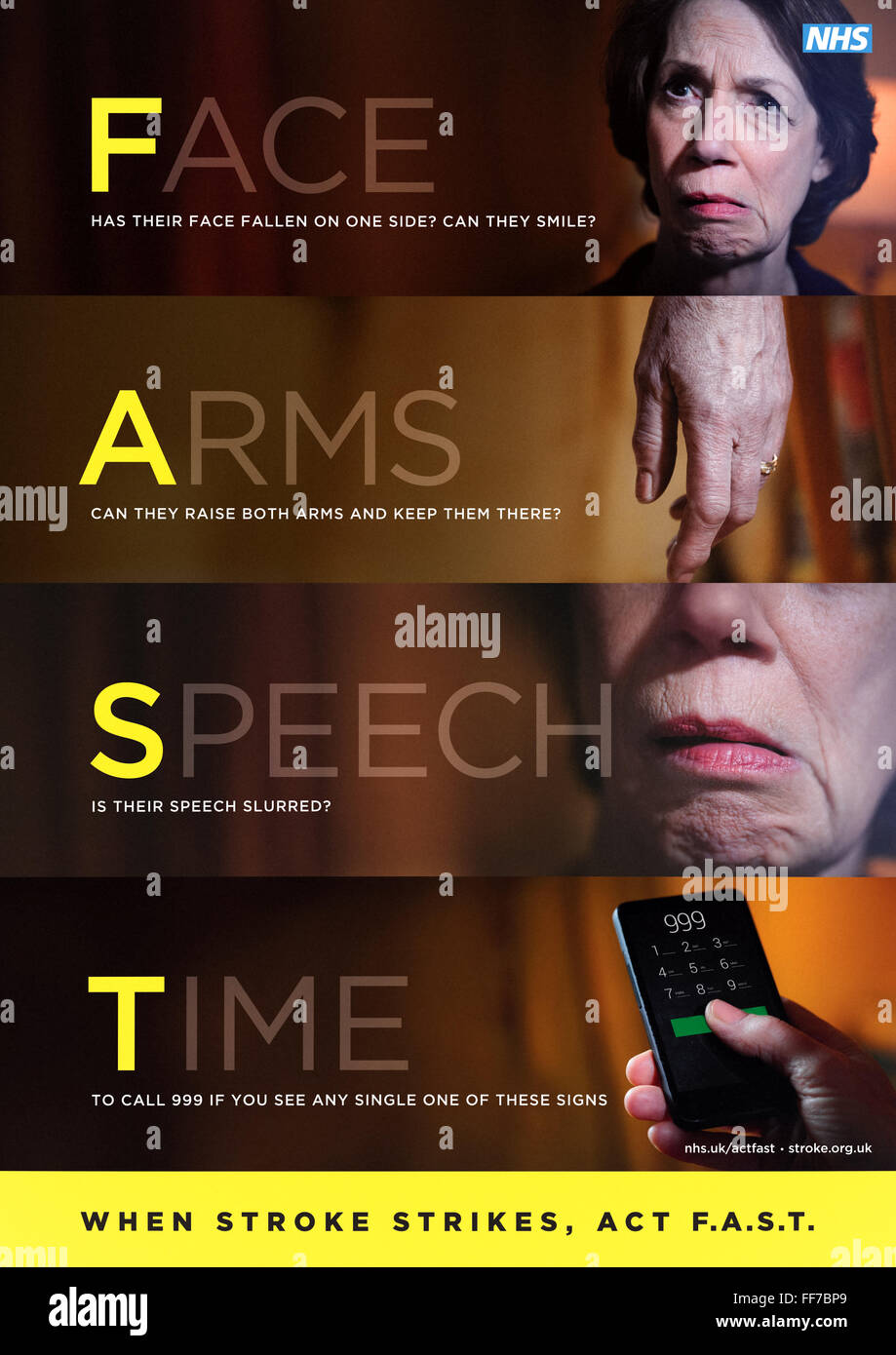Stroke
A stroke is a serious medical condition that occurs when the blood supply to part of the brain is cut off.
Like all organs, the brain needs the oxygen and nutrients provided by blood to function properly. If the supply of blood is restricted or stopped, brain cells begin to die. This can lead to brain damage and possibly death.
Strokes are a medical emergency and prompt treatment is essential because the sooner a person receives treatment for a stroke, the less damage is likely to happen.
The NHS Stroke Act FAST pages offer a great deal of information about stroke, including how to recognise the signs, some real stories of stroke sufferers and advice on how to live your life after a stroke.
Chest Heart & Stroke Charity (Scotland)
 Symptoms of a stroke
Symptoms of a stroke
The main symptoms of stroke can be remembered with the word FAST:
- Face – the face may have dropped on 1 side, the person may not be able to smile, or their mouth or eye may have dropped.
- Arms – the person with suspected stroke may not be able to lift both arms and keep them there because of weakness or numbness in 1 arm.
- Speech – their speech may be slurred or garbled, or the person may not be able to talk at all despite appearing to be awake; they may also have problems understanding what you're saying to them.
- Time – it's time to dial 999 immediately if you see any of these signs or symptoms.

Transient Ischaemic Attack (TIA)
A transient ischaemic attack (TIA), or 'mini-stroke', is caused by a temporary fall in the blood supply to part of the brain, leading to a lack of oxygen to the brain. This can cause symptoms that are similar to a stroke, although they don’t last as long. A TIA lasts only a few minutes and is usually resolved within 24 hours
As TIAs are serious, it is important that they are always investigated so that appropriate treatment can be given quickly. With treatment, the risk of a further TIA or a full stroke can be greatly reduced.
These links all come from trusted resources but if you are unsure about these or any other medical matters please contact your doctor or pharmacist for advice.
Page created: 14 January 2019